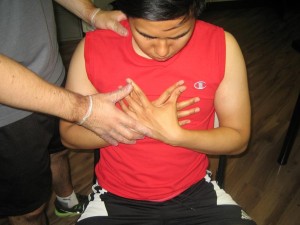A heart attack is considered as a life-changing event. An individual with an acute MI is considered as a life-threatening situation and can lead to cardiac arrest, severe impairment to the heart and even death. Remember that a heart attack is always regarded as a medical emergency and enduring after one in optimum health depends on rapid intervention both by you and the doctor.
With the help of medical advancements and luck, especially if you and the healthcare professionals responded rapidly during the initial critical hours, there is a good chance for the individual to live a long life in optimum health.
What should likely happen next?
Once the condition has been dealt with, it is just the beginning. There are various ways for the individual to optimize his/her cardiovascular health over a long-term basis. It is sad to note that this is where most doctors rush to discharge an individual with an uncomplicated heart attack, typically a few days after admission, thus the vital steps are neglected. If a family member had a heart attack, it is vital to ensure that the doctor will pay close attention to these steps.

Always bear in mind that an acute MI was likely triggered by an abrupt rupture of an atherosclerotic plaque in one of the coronary arteries. The rupture produced a blockage in the artery and caused some or all of the heart muscles being supplied by the artery to be damaged permanently.
Vital facts that you should be aware of
After the initial 24 hours of the heart attack has been successfully dealt with, there are 3 essential facts that you might have not known before.
- The individual has coronary artery disease (CAD) which is a long-lasting, progressive heart condition.
- Some region of the heart muscle has been impaired and the remaining functional heart muscle is straining to keep up with the bodily demands.
- Due to the presence of scar tissue on the heart muscle, the individual is at higher risk for sudden death from heart arrhythmias.
What you and the doctor needs to know in case of a heart attack
Based on the 3 facts stated, there are also 3 major things that you and the doctor should focus on.
- Taking the right steps to prevent another heart attack which includes minimizing the immediate and long-term risks.
- Proper assessment of the degree of damage to the heart that has already occurred and take the necessary steps to prevent the start of heart failure.
- Careful assessment of the risk for sudden death of the individual as well as starting proper preventive therapy if needed.
When helping out a loved one, it is vital to work hand in hand with a doctor so that these vital areas are focused on to ensure the individual long-term survival after experiencing a heart attack.
